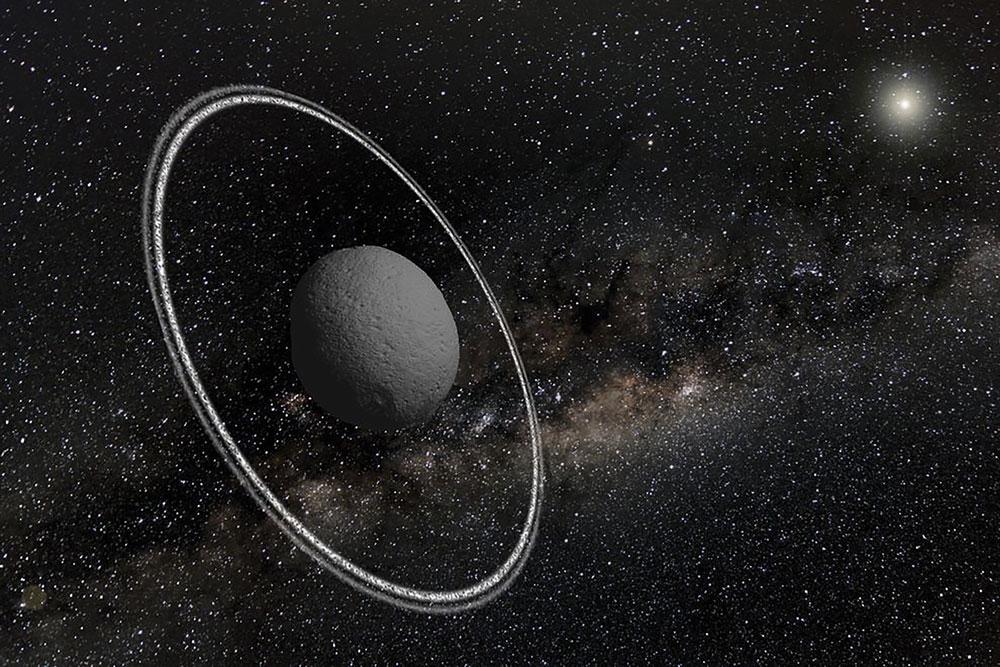App State professor helps discover first known system of rings around an asteroid
Appalachian State University professor in the Department of Physics and Astronomy professor Joseph Pollock helped aid in the discovery of the first known system of rings around an asteroid.

The discovery was published by the European Southern Observatory and Nature on March 26.
Pollock was monitoring the asteroid, called Chariklo, from the Panchromatic Robotic Optical Monitoring and Polarimetry Telescopes in Chile. The observatory is part of the SKYNET network of telescopes founded by UNC Chapel Hill. The discovery was made while observing the asteroid during an occultation.
Pollock said occultations are the same as solar eclipses. When one object in space obscures another, an occultation occurs.
Prior to the discovery, it was known that Chariklo would pass in front of a star. When astronomers noticed smaller occultations before and after the asteroid passed in front of the star, the asteroid’s pair of rings were first observed.
Pollock said the probability that what was seen were rings is almost certain.
“I would put my retirement savings on Chariklo having rings,” he said.
Pollock said when he first started working in astronomy, a discovery like this would not have been possible.
“Before we had remote, robotic telescopes and the Internet to help with international cooperation discoveries like these simply could not happen,” Pollock said.
Pollock said it is interesting to see smaller telescopes being used to make such a landmark discovery.
“You hear about these huge telescopes being used now but this discovery was made using relatively small, low sensitivity telescopes,” Pollock said.
Pollock has been a professor at Appalachian for 31 years and said this discovery is the biggest of his career.
“It never occurred to anyone that there would be rings on an asteroid,” Pollock said. “[We are] finding something completely new and not everyone gets a chance to be involved in something like this.”
Story: Carl Blankenship, Intern News Reporter
Photo Courtesy: Joeseph Pollock

